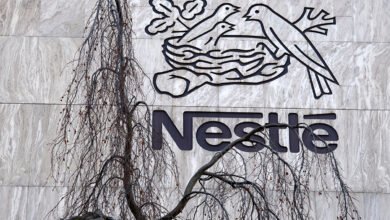
UAE President Arrives in Doha for Urgent Ceasefire Discussions
The UAE President and Qatar’s ruler met in Doha to discuss the Iran-Israel ceasefire after a recent attack on Qatari territory. The leaders focused on peace initiatives and diplomatic solutions to keep the Middle East stable. The meeting became crucial after an attack on Al Udeid airbase forced Qatar, Bahrain, and Iraq to close their airspace and divert several flights.
Sheik Mohamed bin Zayed Al Nahyan expressed UAE’s full support for Qatar after the attack. He praised Qatar’s Amir for helping broker the ceasefire agreement between Iran and Israel. The leaders agreed that dialog remains the best way to resolve regional crises and ensure security. Their meeting shows how Gulf nations work together when regional tensions rise.
UAE President meets Qatar Emir to reinforce bilateral ties

“The Amir HH Sheik Tamim bin Hamad Al-Thani stressed that his talks with HH President of the United Arab Emirates (UAE) Sheik Mohamed bin Zayed Al Nahyan in Doha addressed ways to enhance the distinguished cooperation between the two countries, in light of the mutual fraternal ties that unite the two brotherly peoples, and to intensify joint efforts to ensure regional security.” — Sheik Tamim bin Hamad Al-Thani, Amir of the State of Qatar
His Highness Sheik Mohamed bin Zayed Al Nahyan made his way to Doha on Wednesday. This fraternal visit aims to deepen the ties between the United Arab Emirates and Qatar. The UAE President received a warm welcome from the Qatari Emir, Sheik Tamim bin Hamad Al Thani at Hamad International Airport.
The two leaders met to discuss ways to boost their nations’ strong bilateral relations. They shared their steadfast dedication to strengthen joint Gulf cooperation that would benefit their countries and citizens.
“The visit aimed to reinforce the longstanding and deep-rooted relations between the UAE and Qatar and explore ways to further enhance cooperation for the benefit of both nations and their peoples,” according to official statements.
The leaders discussed several opportunities for cooperation that would serve both nations’ interests. Their focus remained on bringing prosperity to their people through joint work in different fields.
The UAE President brought an impressive delegation that included:
- H.H. Sheik Hamdan bin Mohammed bin Rashid Al Maktoum, Crown Prince of Dubai, Deputy Prime Minister, and Minister of Defense
- H.H. Sheik Hamdan bin Mohamed bin Zayed Al Nahyan, Deputy Chairman of the Presidential Court for Special Affairs
- Sheik Mohammed bin Hamad bin Tahnoon Al Nahyan, Advisor to the UAE President
Qatar’s side featured several senior officials:
- H.H. Sheik Jassim bin Hamad Al Thani, Personal Representative of the Emir of Qatar
- Sheik Mohammed bin Abdulrahman bin Jassim Al Thani, Prime Minister and Minister of Foreign Affairs
- Several other Qatari sheikhs and senior officials
This fraternal visit shows how both nations value their diplomatic ties and historic relationship. The meeting reflects ongoing efforts to advance Gulf unity at a time when regional coordination matters greatly.
Leaders address Iran-Israel ceasefire and regional stability

“HH the Amir added that they also discussed the recent escalation in the region and its grave repercussions, and that they are intensifying the joint efforts to ensure the security and stability of the region and the safety of its people.” — Sheik Tamim bin Hamad Al-Thani, Amir of the State of Qatar
His Highness Sheik Mohamed bin Zayed Al Nahyan and Sheik Tamim bin Hamad Al Thani’s diplomatic talks focused on the Iran-Israel ceasefire that was announced recently. This marked a vital step toward regional de-escalation. The UAE President praised Sheik Tamim’s key role in arbitrating the ceasefire agreement, which showcased Qatar’s diplomatic importance during this critical time.
Both leaders stressed that diplomatic solutions and dialog are the best ways to resolve regional crises and maintain Middle East’s security and stability. The UAE has reached out to 36 countries to help reduce regional tensions, showing its support for restraint.
Iran’s missile strike on Qatar’s Al Udeid Air Base made these discussions more urgent and triggered an immediate global response. The UAE strongly condemned this attack as a “blatant violation of Qatar’s sovereignty” that weakens regional security. The UAE showed complete solidarity with Qatar and backed all measures to protect Qatari citizens’ security and safety.
Qatar’s Prime Minister Sheik Mohammed bin Abdulrahman Al Thani played a significant role in the ceasefire announcement. He convinced Tehran to accept the deal after U.S. President Donald Trump got Israel’s agreement. Both sides, in spite of that, have accused each other of breaking the truce soon after it began.
The UAE Ministry of Foreign Affairs welcomed this ceasefire as a positive step toward regional stability. UAE leaders emphasized the need for coordinated international action to protect the region’s security. Both nations renewed their pledge to work with regional and international partners to unite peace efforts and boost security, stability, and development globally.
UAE reaffirms support for Qatar’s sovereignty after Iranian attack
Image Source: Washington Times
The United Arab Emirates responded firmly to the missile strike on Qatar’s Al Udeid Air Base by condemning the attack as a direct violation of international law. His Highness Sheik Mohamed bin Zayed Al Nahyan showed steadfast dedication to Qatar during the Doha meeting. He stressed that threats to Qatar’s sovereignty endangered regional stability.
The UAE Ministry of Foreign Affairs released a strong statement that called the attack “a blatant violation of Qatar’s sovereignty” and a serious threat to regional security. The ministry backed Qatar’s right to take necessary steps to protect its citizens and territory.
Sheik Mohamed bin Zayed made it clear that the UAE supports Qatar against external threats and violations of its territory. This stance lines up with UAE’s foreign policy that values national sovereignty as a key principle of international relations.
The leaders recognized how military escalation could threaten regional security. They decided to improve their information sharing and coordination to stop future threats to Gulf stability.
The UAE went beyond words and offered practical help if Qatar needed it. This gesture showed the strong brotherly ties between both Gulf nations that grew stronger after the 2021 Al-Ula Declaration settled their past differences.
The attack on Qatar ended up bringing Gulf nations closer as other GCC states also spoke against it. The region showed unity against outside interference in Gulf matters, with the UAE leading the support for Qatar’s territorial rights.
The UAE President’s Doha visit became a symbol of not just two-nation solidarity but also showed how Gulf countries work together when regional security faces challenges.
A Step Toward Regional Peace and Gulf Unity
The talks between UAE President Sheik Mohamed bin Zayed Al Nahyan and Qatar’s Emir Sheik Tamim bin Hamad Al Thani mark a turning point in Gulf diplomacy. Both leaders showed their steadfast dedication to regional stability through dialog rather than military action. Their discussions tackled immediate concerns after the Iranian missile strike and built a foundation for future cooperation.
The UAE President praised Qatar’s diplomatic role in securing the Iran-Israel ceasefire, which highlighted the value of peace efforts. The UAE’s quick condemnation of the attack on Al Udeid Air Base strengthened the principle that an attack on one Gulf state threatens all others’ security.
Regional tensions continue, but these talks signal a transformation toward Gulf nations’ unity. The strategic collaborations have replaced fractured relationships, especially after the 2021 Al-Ula Declaration. This meeting proves how the GCC approaches collective security challenges differently now.
Both sides agreed that diplomatic solutions offer the only path to lasting peace. Their shared commitment to international cooperation builds a framework to address future crises through multiple channels instead of individual action.
The diplomatic ties between Qatar and the UAE show how regional powers can direct complex security threats through unity and mutual respect. Their stronger relationship serves their national interests and adds stability to the Middle East during these challenging times.






